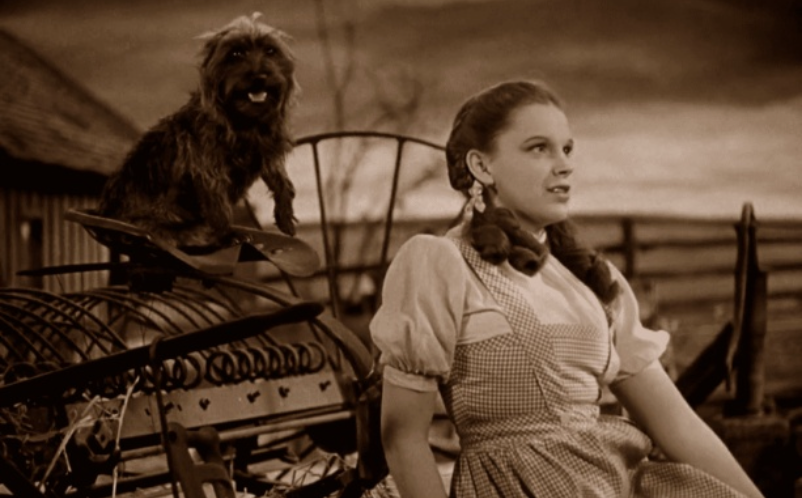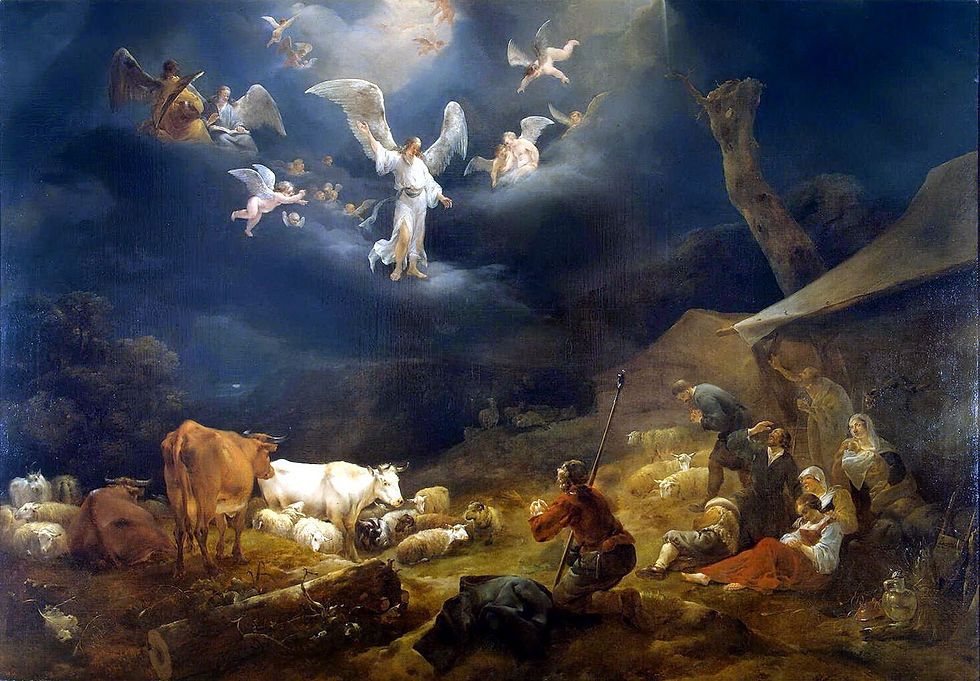There’s No Place Like Home
- Drew M Christian

- Nov 7, 2025
- 5 min read
November 5, 2025
Most of us are familiar with Dorothy Gale—a young girl living on a Kansas farm with her Aunt Em, Uncle Henry, and her dog, Toto. Life there is bleak and routine; farm life on the prairie is hard, dusty, and drained of color. Dorothy feels lonely, overlooked, and misunderstood. Her aunt and uncle are too busy to listen to her fears about Miss Gulch wanting Toto destroyed. The farmhands—Hunk, Hickory, and Zeke—care about her, but they don’t take her concerns seriously. She feels unheard.

Her boredom, frustration, and conflict with Miss Gulch lead her to dream of a better life—one filled with excitement and color—perhaps somewhere “over the rainbow.”
Then a whirlwind lifts her away and drops her into a strange land, a land truly “over the rainbow,” filled with vibrant color and song. Surrounded by Munchkins and Glinda the Good Witch, Dorothy marvels, “We must be over the rainbow!”

Don’t we all long for such a place?
A place where “the dreams that you dare to dream really do come true,” where “troubles melt like lemon drops,” and where “skies are blue.” We all yearn for a place where we belong, where we are known and loved, where life is not gray and shadowed but bright and full of meaning—a place where our searching ends and joy begins.
Yet, when the Wicked Witch of the West appears, Dorothy quickly realizes this isn’t the paradise she imagined. She is frightened; all is not well in Munchkinland. So, she resolves to follow the Yellow Brick Road to the Emerald City. Surely there, before the great Wizard of Oz, she will find what she’s been looking for: freedom, peace, and rest.
But when she finally reaches the Emerald City, it is not what she expected.
Can you see yourself in this story?
Always moving on to the next thing—believing that if you can just get there, have that, fix this one problem, have so much money in your savings—you’ll finally be happy, content, and at peace. Yet when you arrive, what you seek is still missing, still just out of reach, always on the other side of the fence.
When Dorothy meets the Wizard, he says, “Go away and come back tomorrow!”
“Tomorrow?” Dorothy cries. “Oh, but I want to go home now.”
Her cry echoes that of the prodigal son who, coming to his senses, says, “I will set out and go back to my father.”
Like the prodigal son, we are often restless and discontented. We chase after what we think will satisfy us, seeking fulfillment in the world’s promises. Yet nothing earthly can fill the deep ache within us. Our striving, ambitions, and distractions only pull us further from the One who can truly satisfy us.
Like the prodigal son—and like Dorothy—we must realize that everything we need is in our Father’s house. Luke 15:13–20 shows us the son making that choice, taking the first step home, a journey that begins in the heart:
“After he had spent everything…he began to be in need…When he came to his senses, he said, ‘How many of my father’s hired servants have food to spare, and here I am starving to death! I will set out and go back to my father…’ So, he got up and went to his father. But while he was still a long way off, his father saw him and was filled with compassion for him; he ran to his son, threw his arms around him, and kissed him.”
What does the father do? He runs.
Kenneth Bailey notes, “Middle Eastern men of rank do not run…because to do so they must lift their robes, exposing their legs, which is considered shameful.”
The father humbles himself, taking on shame to protect his son. By running to him—before the townspeople can mock or reject him—he takes the scorn upon himself.
Isn’t that what Jesus did for us?
Jesus’ parable teaches that God forgives, restores, and celebrates our return no matter how far we’ve wandered. No matter how muddy or broken we are, He runs to meet us, wraps us in His arms, and says, “Forget your apologies—all is already forgiven. You’re home.”
Near the end of The Wizard of Oz, Dorothy asks Glinda, “Can you help me?”
Glinda replies, “You don’t need to be helped any longer. You’ve always had the power to go back to Kansas. Close your eyes, tap your heels together three times, and think to yourself, ‘There’s no place like home.’”
Just as the prodigal son had the power to turn back—to repent and return home—you and I also hold that power: the ability to come to our senses and turn back to the God we’ve ignored.
The prophet Joel cries out: “Yet even now, says the LORD, return to me with all your hearts…Return to the LORD your God, for he is merciful and compassionate, very patient, full of faithful love, and ready to forgive” (Joel 2:12–14).
God has given us, through His Son Jesus Christ, a “yellow brick road” back to His heart—but it’s up to us to walk it.
And as we walk, we discover that our distractions and ambitions don’t just pull us from God—they also separate us from one another.
In the film, Dorothy skips down the Yellow Brick Road singing alongside her newfound friends—the Scarecrow, the Tin Man, and the Cowardly Lion. In Baum’s original book, she laughs and chats with them, helping one another through dangers and difficulties. Along the journey, Dorothy learns that wisdom, heart, and courage are not distant prizes but qualities that grow through love, friendship, and shared struggle.
Her happiness doesn’t come from reaching a destination, but from companionship and gratitude along the way.
So often, when we chase after worldly things, we isolate ourselves—not only from God but from the people He’s placed in our lives to help us. We get so caught up wanting “more” that we forget to appreciate what and who we already have.
Dorothy’s journey reminds us that sometimes we must go far away to realize the value of what was ours all along—to realize, “There’s no place like home.”
At the end of The Wizard of Oz, Dorothy awakens in her bed in Kansas and cries, “Oh, but anyway, Toto, we’re home! HOME! And this is my room—and you’re all here! And I’m not going to leave here ever, ever again, because I love you all! And—oh, Auntie Em—there’s no place like home!”

We don’t need to look “somewhere over the rainbow,” because, as Psalm 90:1 declares: “Lord, through all generations—past, present, and future—you have been, you are, and you will be our home.”
Through His Son, Jesus Christ, God has given us that same “yellow brick road” back to His heart—and back to one another—where we find encouragement, belonging, and love for the journey.
Start walking!



Comments